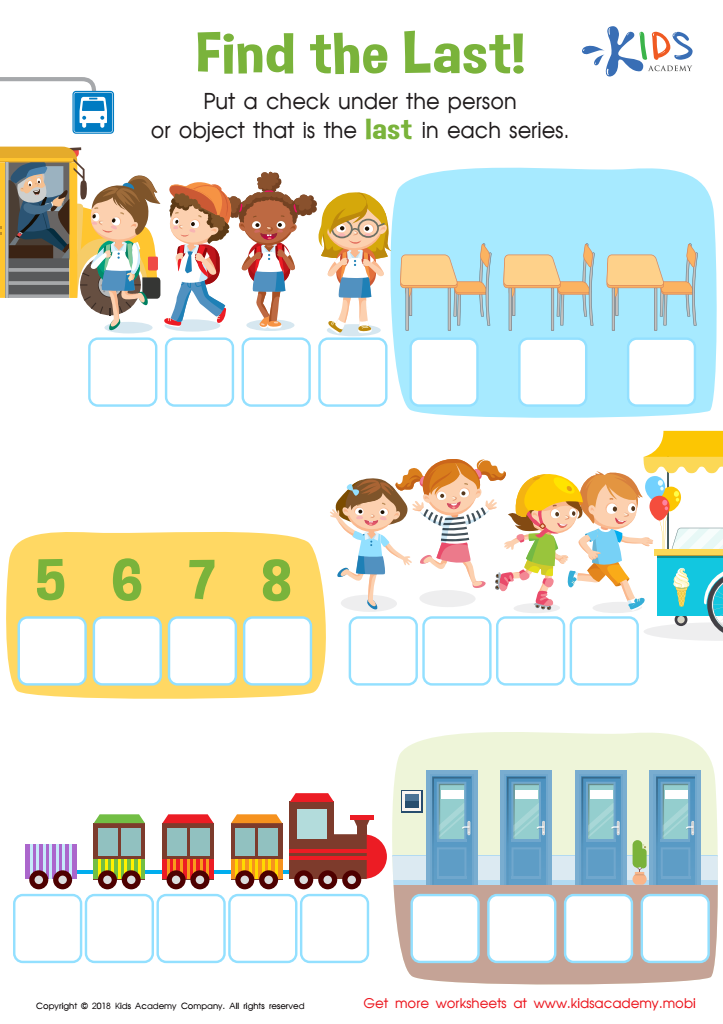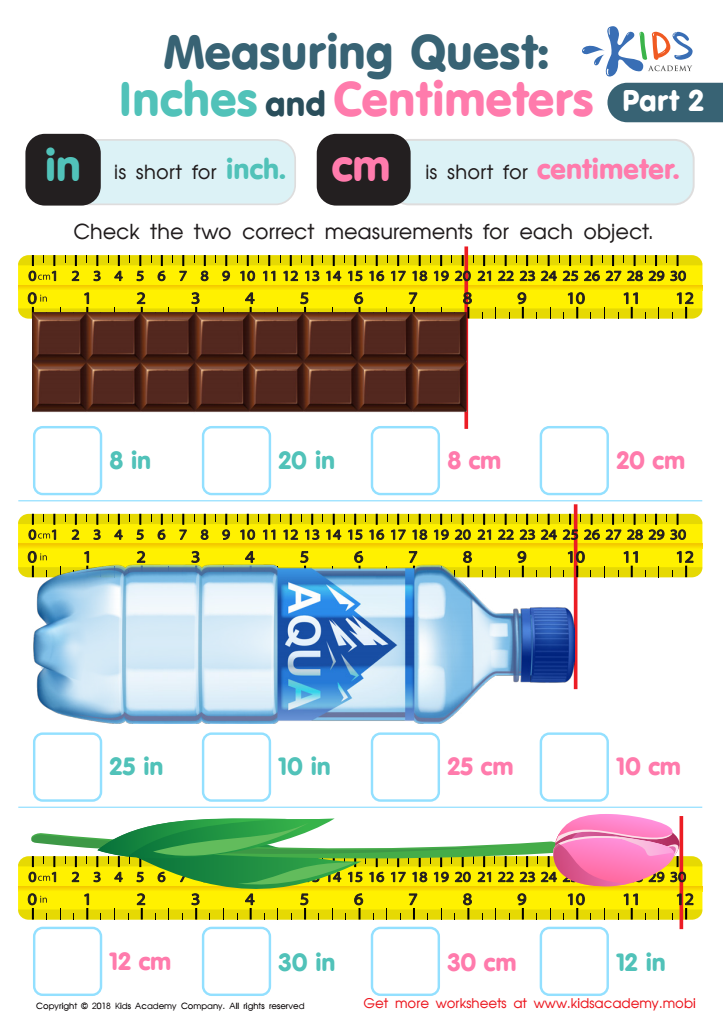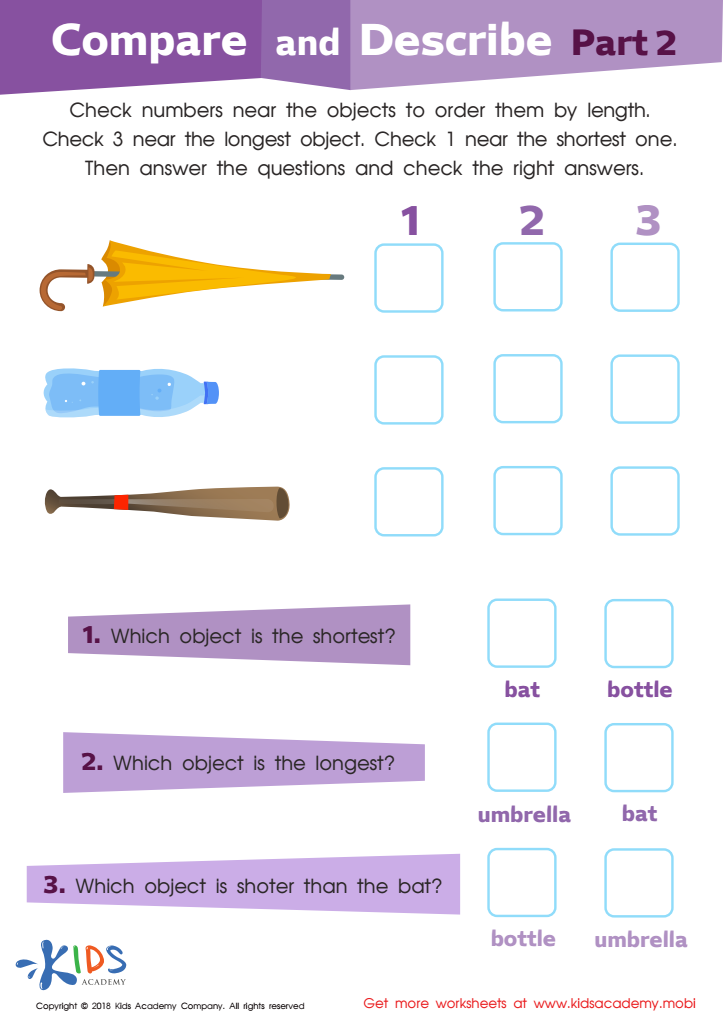Basic Math Skills Normal Measurement Worksheets for Ages 6-7
3 filtered results
-
From - To
Enhance your child's understanding of measurement with our engaging "Basic Math Skills Normal Measurement Worksheets" designed for ages 6-7. These worksheets introduce essential concepts like length, weight, and volume through fun and interactive exercises. Tailored for young learners, each activity promotes critical thinking and problem-solving while reinforcing basic math skills in a friendly, inviting format. Ideal for both classroom and home use, our worksheets are perfect for boosting confidence and fostering a love for math. Explore colorful visuals and relatable scenarios that make learning measurement both enjoyable and effective. Start your child’s math journey today with these immersive resources!


Find the Last! Worksheet


Measuring Quest: Inches and Centimeters - Part 2 Worksheet


Compare and Describe: Part 2 Worksheet
Parents and teachers should prioritize basic math skills in normal measurement for children aged 6-7 because these foundational abilities are crucial for everyday life and future learning. At this age, children are developing cognitive skills that help them understand the world around them, and measurement concepts provide a practical application for those skills.
Understanding measurement—such as length, weight, and volume—enables young learners to engage with their environment meaningfully. For example, they can begin to measure ingredients for recipes, understand distances during play, or compare the weights of various objects. This builds their critical thinking and problem-solving skills, preparing them for more complex mathematical concepts in the future.
Moreover, early exposure to measurement helps children develop a firm grasp of units and estimation, fostering a positive attitude towards math. It also allows for enhanced spatial awareness and logical reasoning, important components not just in math, but in science and technology fields.
By supporting the development of measurement skills, parents and teachers are equipping children with tools they will use throughout their lives, making math not only understandable but also enjoyable—laying the groundwork for a lifelong appreciation and aptitude for learning.
 Assign to My Students
Assign to My Students


















